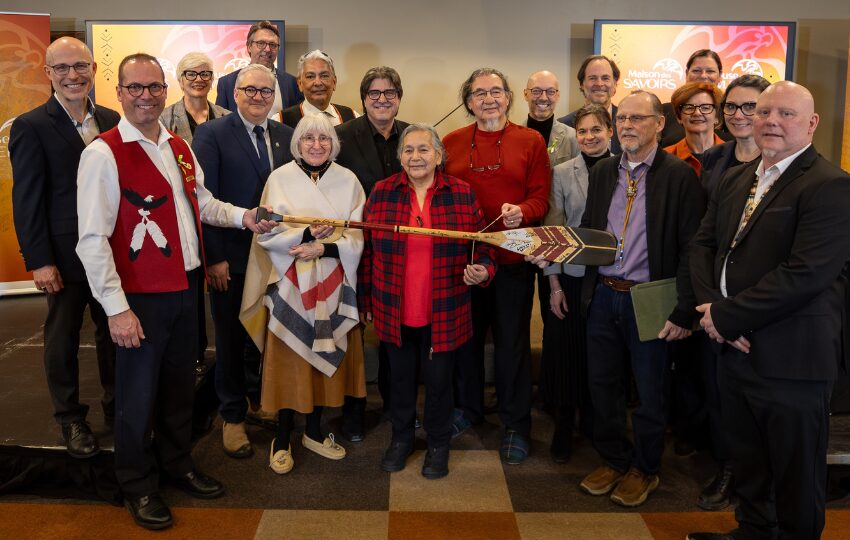
McGill has joined other Quebec universities in signing a historic agreement with the First Nations Education Council (FNEC) to lay foundations for the future House of Knowledge, the first university in Quebec to be created by and for First Peoples.
The House of Knowledge aims to offer a university-level curriculum adapted to communities’ needs, in a learning environment that reflects First Peoples’ identities and values. As partner institutions, McGill and other Quebec universities will explore establishing an administrative framework to recognize prior learning and accept transfer credits.
“This is welcome news” said Celeste Pedri-Spade, Associate Provost (Indigenous Initiatives). “Through strategic initiatives and pathways, we can work together towards supporting Indigenous students who want to transition to programs that McGill offers that are relevant to their educational aspirations.”
In advancing Indigenous student recruitment and retention, the initiative also aligns with McGill’s 52 calls to action for Truth and Reconciliation.
An innovative model
The House of Knowledge would offer a physical and digital learning environment. It would fulfill its mission in a variety of ways, including through transitional university programs, programs specific to First Peoples’ cultures and languages, and hybrid university pathways that draw on existing course offerings at partner universities, all within a culturally safe setting.
The driving force behind the House of Knowledge is the FNEC. With 22 member communities in Quebec, it represents approximately 6,000 elementary, high school and college learners and has been working on a university project since 2021.
“Indigenous-led and Indigenous-operated higher learning institutions in other parts of the country have taught us that Indigenous organizations are well positioned to meet the unique educational needs of Indigenous students,” said Pedri-Spade. “They can respond to local and regional objectives and provide a solid foundation that is culturally relevant.”
The project’s next step is completion of a business plan, to be submitted to Quebec’s Ministère de l’Enseignement supérieur in 2027.
“It is exceptional to think that, in my lifetime, I will see graduates of the House of Knowledge,” said Denis Gros-Louis, Director General of FNEC. “I would like to thank the partner institutions for their collaboration, and their enthusiasm in contributing to this innovative model.”
